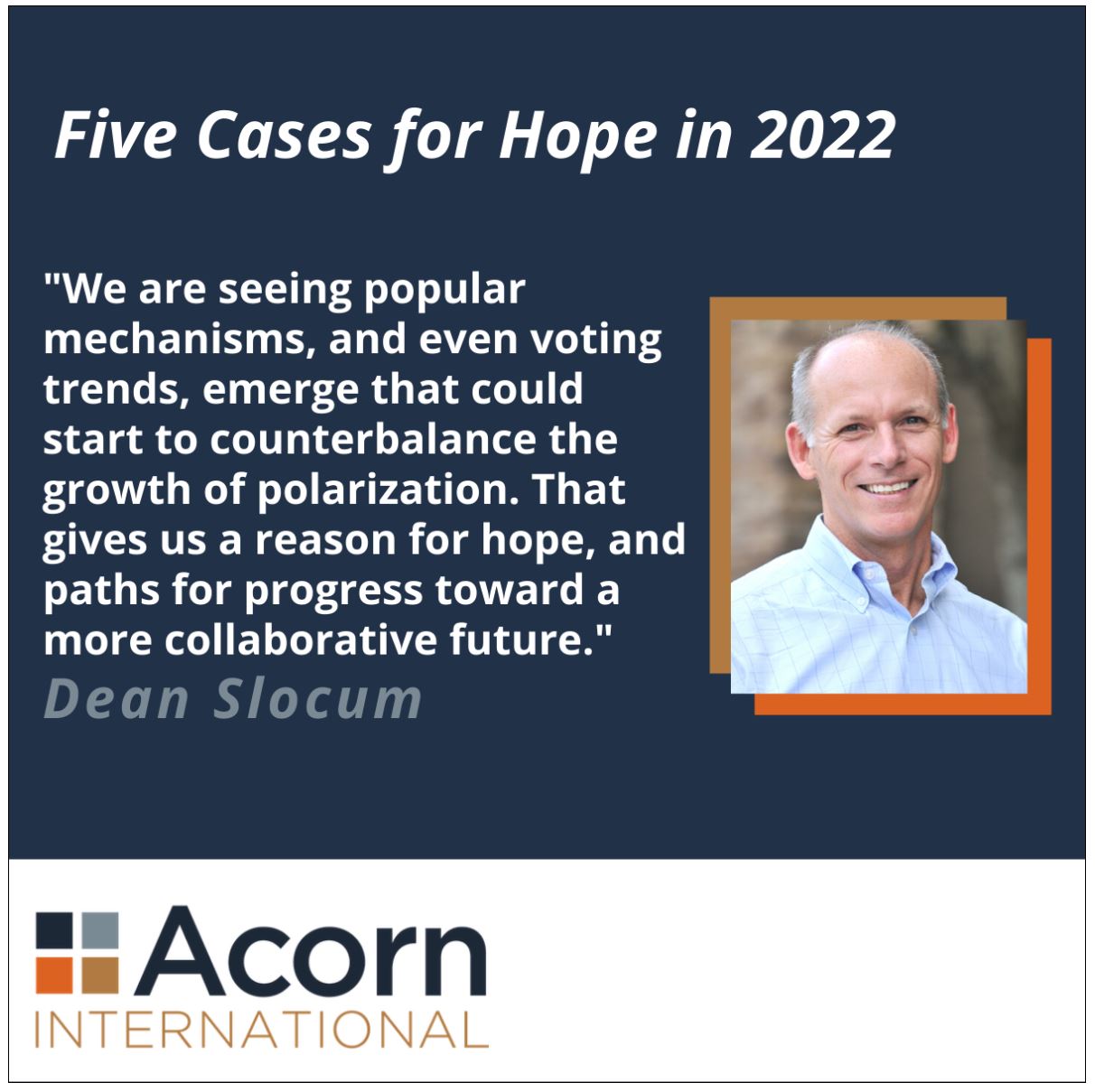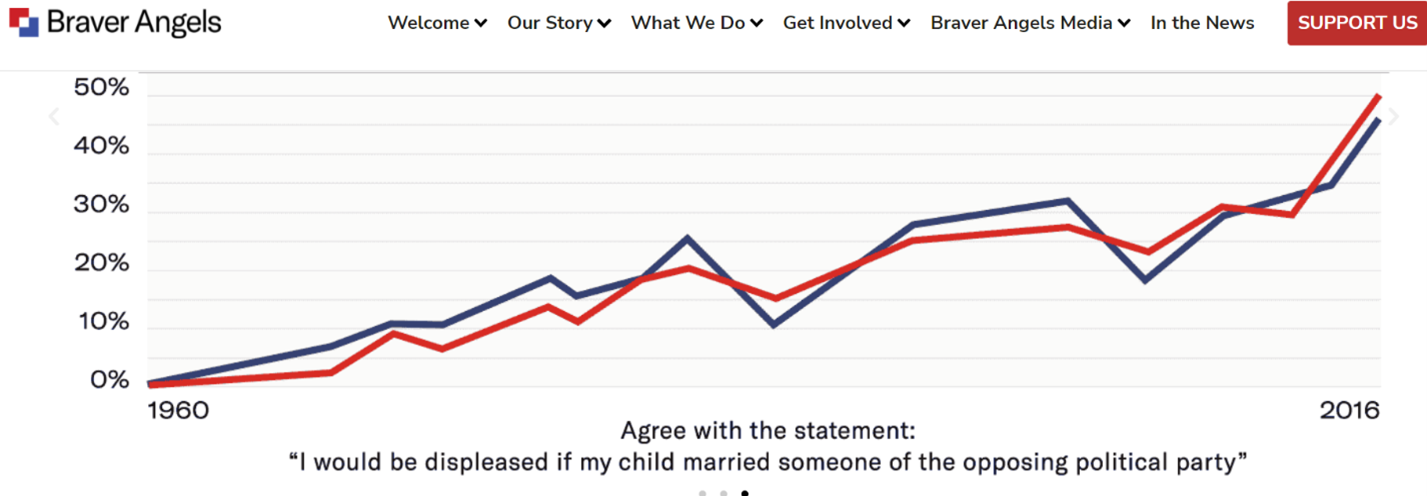5 Cases for Hope in 2022: #5 Polarization
This is the 5th of a series of 5 posts on “5 Cases for Hope in 2022” – see https://www.linkedin.com/company/2257207
Since the new year, we’ve been posting a series of posts about global ESG crises we face – and making a case for reasons to be hopeful amidst all the gloom. This is not in any way to minimize the reality and gloomy impact of these crises or diminish the need for urgent action to address them – but rather to help us all find some added energy for progress through hope. This week’s crisis and subject for hope: Polarization.
For the past two years – the coronavirus pandemic has intensified already stark divides in politics and cultures worldwide. The news is flooded with conflicts over policies on mask and vaccine mandates, and commentators’ opinions on these topics change from one channel to the next. However, as the pandemic has put a spotlight on issues such as social inequality, climate change, and racial injustice, many people are engaging in meaningful dialogue that promotes increased listening to differing perspectives.
Consensus on Issues
While political polarization has been trending stronger worldwide, we are seeing pockets of that polarization evolving to issues vs political parties or philosophies. In Latin America, for example, recent elections in Chile and Ecuador suggested that “voters are looking to candidates and policies that aim to ease the stark social inequality that preceded, and was only exacerbated by, the coronavirus pandemic”(1). The evolution of the political landscape in this region shows there is a growing consensus among the voting demographic on key issues vs institutionalized ideology. In Chile, this change was stimulated by political protests and nationwide demonstrations against tax reform and police brutality. While it’s hard to argue that polarization is in decline, there is evidence of openness to new ideas and perspectives that are beneficial for the collective.
A Path Toward Common Ground
Media outlets – such as broadcast news, editorial publications, and social media – play a large role in reinforcing polarization among political parties. Claudine Gay, a professor
at Harvard University, noted that, “with a fractured media landscape, as well as the echo-chamber-like quality of social media, Americans now live in separate ‘factual’ universes.”(2) Because we tend to seek out media that will confirm our own beliefs, engaging in deliberate and meaningful conversations with “them”[1] is key to combating polarization. In an article outlining 7 ideas to reduce political polarization, Rachel Kleinfeld notes that we need to “promote empathy to reduce prejudice”(3), such as through personal stories that encourage a common ground or shared experience.
Learning to Talk, Starting with Listening
Increased frustration with polarization has given rise to grassroots platforms dedicated to building our capacity for opening and enhancing open dialogue with those who have opposing political views but see a need for compromise. One such platform, Braver Angels[2], was formed in the US to curb the growth of polarization (see chart) through facilitated debates, training in open listening and practice on de-escalating conversations involving opposing views.
In a time when it is common to work and connect with our network through a screen, it is difficult to find the “human” side when there are opposing views. But as the growth of polarization stifles conversations from dinner tables to legislative chambers, we are seeing popular mechanisms, and even voting trends, emerge that could start to counterbalance that growth. That gives us a reason for hope, and paths for progress toward a more collaborative future.
 Sources
Sources
1) https://foreignpolicy.com/2021/12/24/chile-election-boric-2021-latin-america-top-stories/
2) https://news.harvard.edu/gazette/story/2022/02/is-american-democracy-in-peril/
[1] Them: Why We Hate Each Other – and How to Heal by Ben Sasse.
[2] https://braverangels.org/
News & Notes

Acorn International
1702 Taylor St, Suite 200B
Houston, TX 77007, USA
1213 Purchase St
New Bedford, MA 02740, USA

